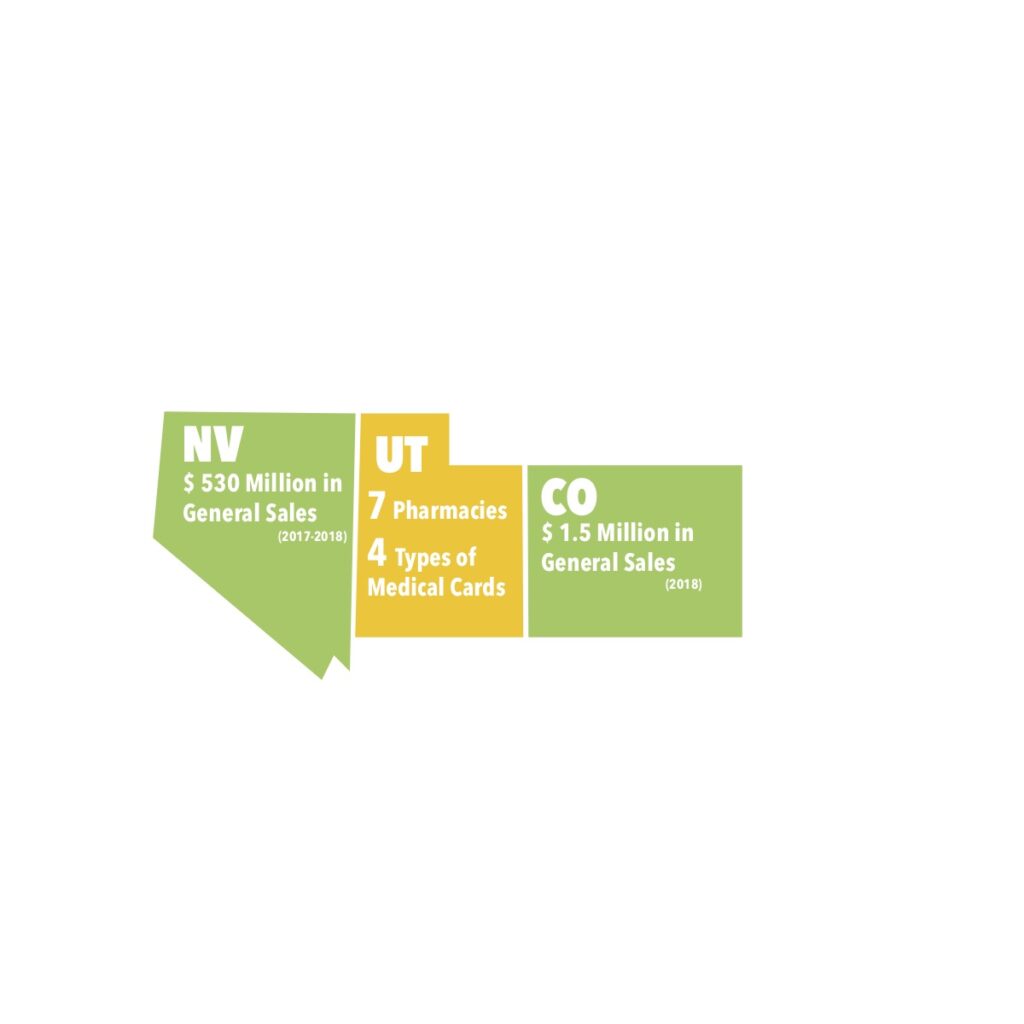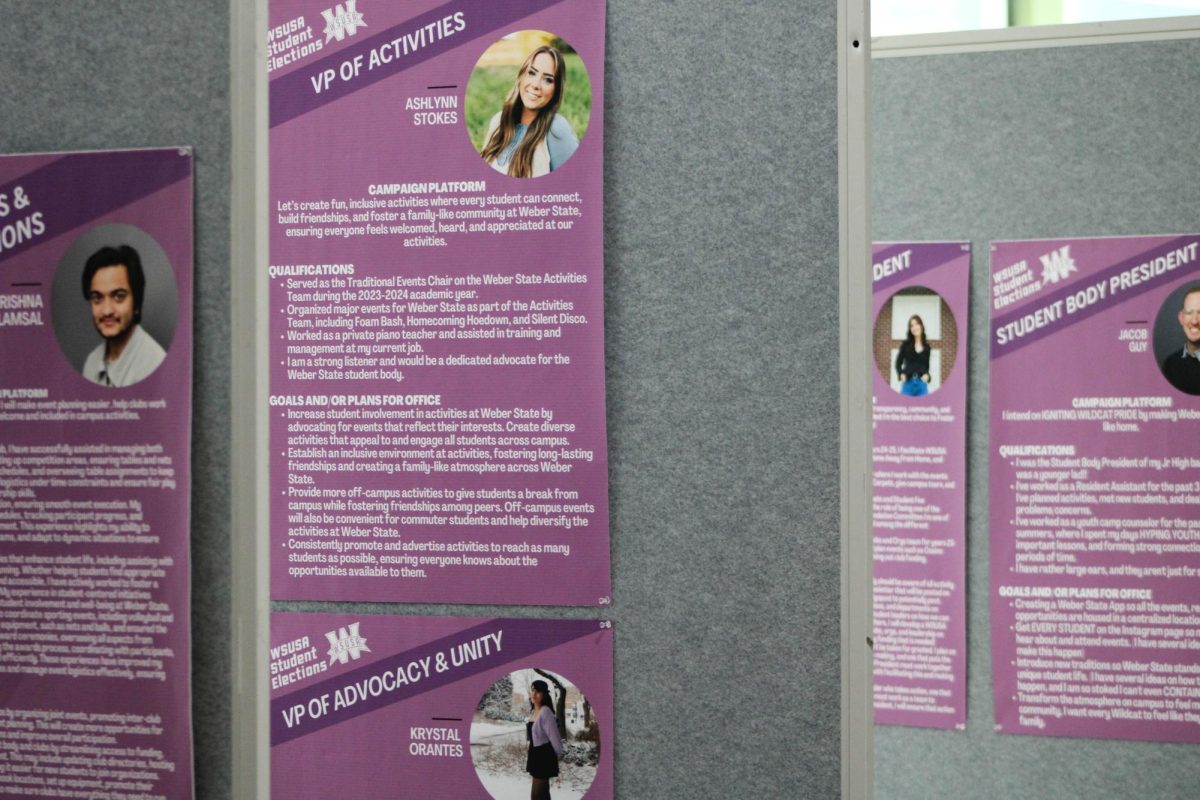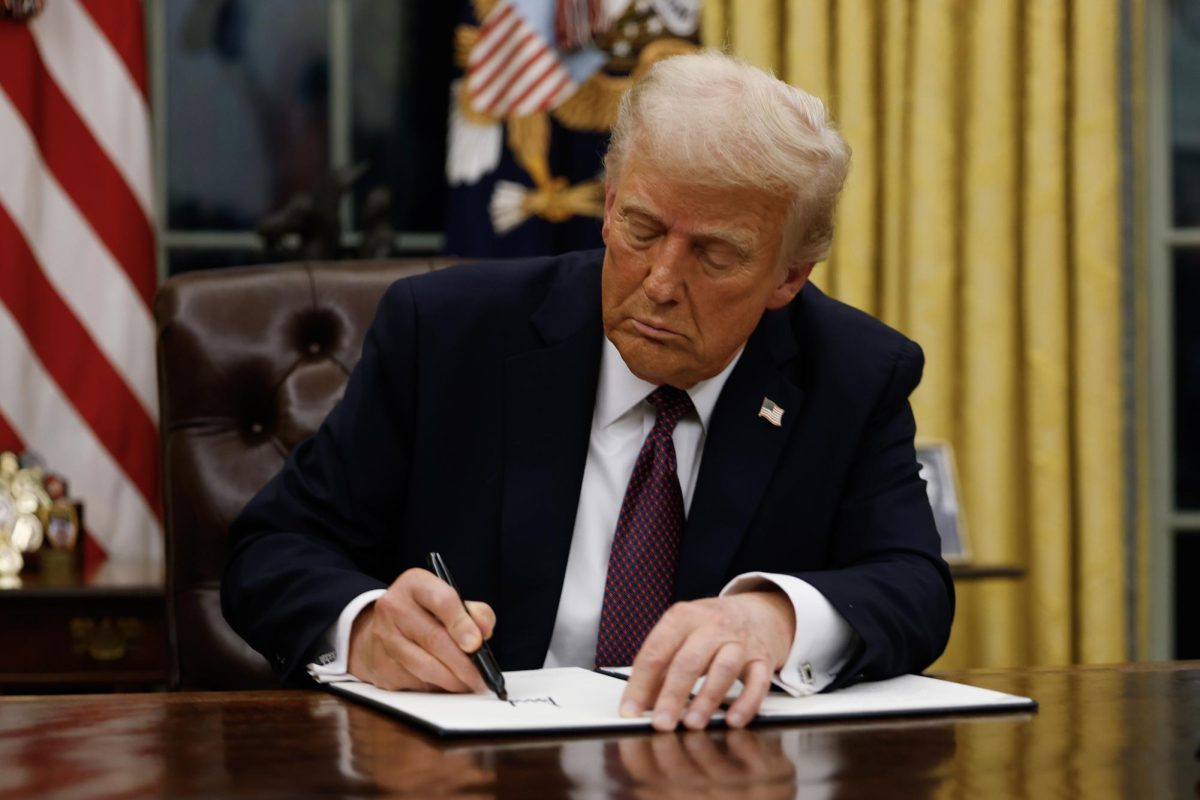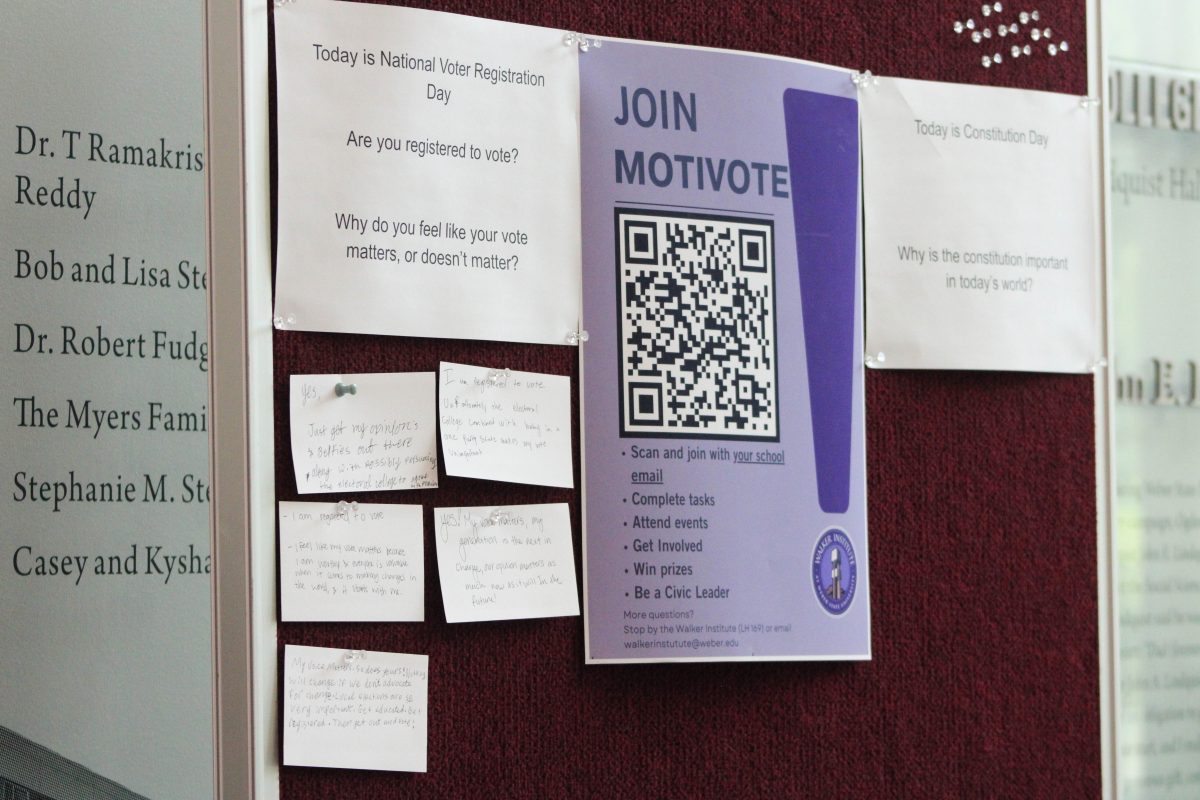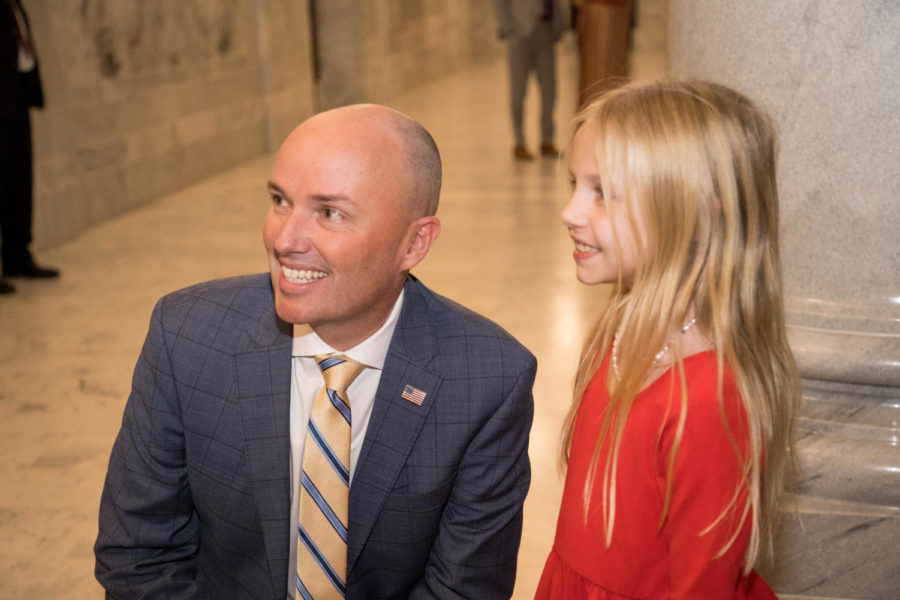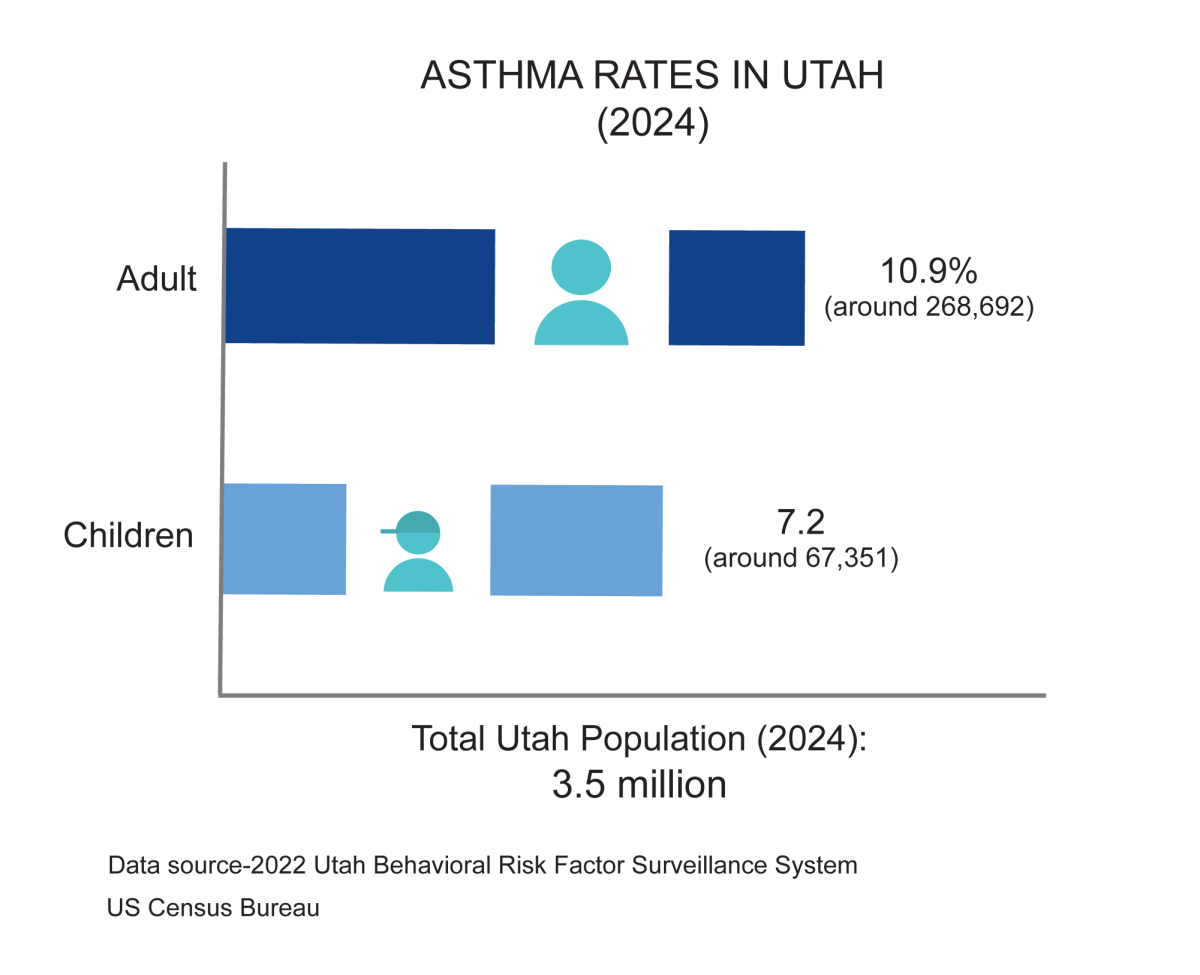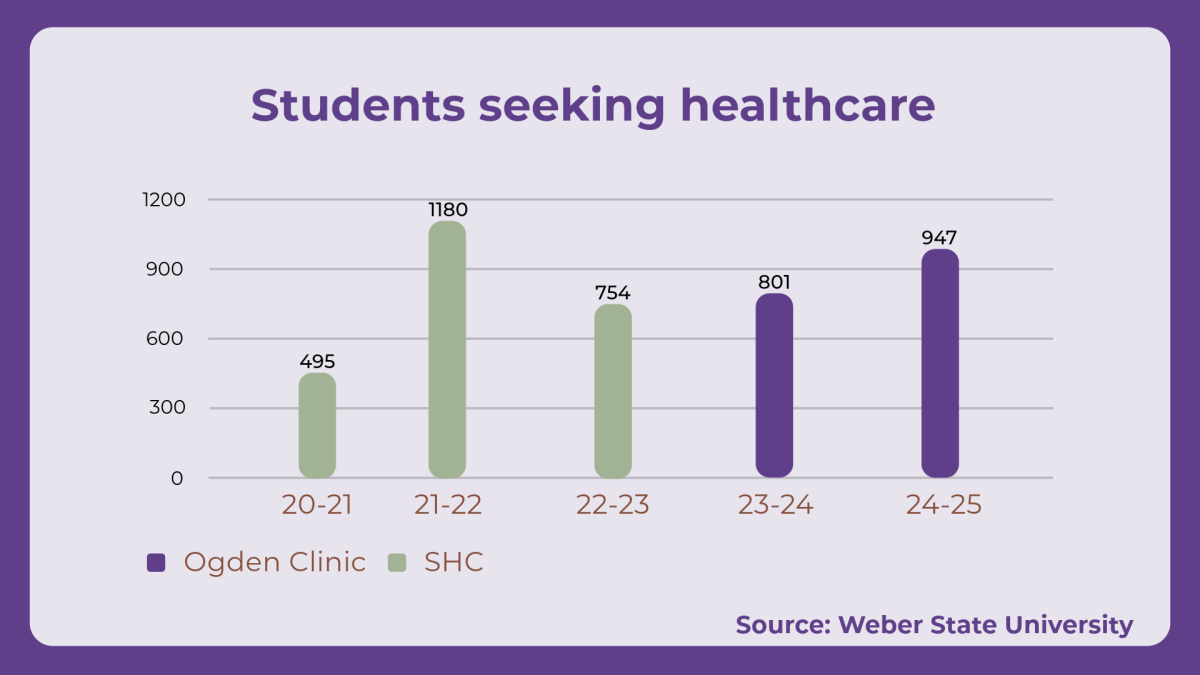If you drew an imaginary line from West Wendover, Nevada, to Dinosaur, Colorado, where cannabis is legal both medicinally and recreationally, what would fill the space between the two towns?
The answer is Utah, where in November 2018, medicinal cannabis was voted legal by a majority of Utahns through Proposition 2.
Under the proposition, approved illnesses and conditions such as HIV, cancer, autism, epilepsy and various others, would be eligible for treatment by medicinal cannabis.
After Prop 2 passed, anxiety and anticipation ensued from the community when the Utah Legislature altered the bill.
Ashalea Wilkerson, an 18-year-old Salt Lake City resident and Prop 2 supporter, went door-to-door in her community, passing out flyers and advocating heavily for the bill.
“I was so excited to see medical marijuana pass here, especially in my first election,” Wilkerson said. “But then the bill was changed, and I almost felt betrayed by my own government, even though I don’t qualify for medical cannabis.”
Wilkerson took an interest in sharing her approval of the bill and wanted fellow Utah residents to take interest in the topic as well.
“I would strike up a conversation with anyone who even glanced in my direction and would ask them their thoughts and opinions on medical marijuana,”
Wilkerson said.
In 2017, The Salt Lake Tribune and the University of Utah Hinckley Institute of Politics found that 75 percent of Utah’s voters were either strongly-for or somewhat-for legalizing medical cannabis. In October of 2018, a Hinckley Poll showed that only 51 percent of voters surveyed approved of Prop 2.
“I think that the LDS church has a major influence on the government here in Utah,” Wilkerson said. “They might not oppose medical marijuana entirely, but it is something, in my mind, that they are not happy with.”
Officials of The Church of Jesus Christ of Latter-day Saints had previously said the Church was not opposed to medical marijuana; however, the Church openly opposed Prop 2 in its original form.
In May of 2018, the Church released a seven-page memo with legal responses to the original proposition. The memo was prepared by the law firm Kirton McConkie, a firm frequently used by the Church.
The memo addressed the legalities and potential issues the Church saw in the proposed bill, such as dosage and patient monitoring.
“Once a person has a medical cannabis card, which is good for six months unless the physician recommends a shorter time, the cardholder can buy the maximum amount allowed under the law every 14 days and use it as he or she chooses,” a memo under a section pertaining to a lack of prescription under Prop 2 stated.
Elder Jack N. Gerard, a member of the the Quorum of the Seventy of the Church, said the Church does not object to medical marijuana, so long as it is prescribed by doctors with specific dosages and obtained through a licensed pharmacy.
“We are deeply concerned by the history of other states that have allowed for medical or recreational use of this drug without the proper controls and have experienced serious consequences to the health and safety of their citizens,” Gerard said.
With the replacement law on medicinal cannabis that the legislature passed, patients with approved conditions will have to receive a recommendation from a qualified medical provider before applying for a medical cannabis card, according to the Utah Department of Health.
Qualified medical providers are physicians, osteopathic physicians, advanced practice registered nurses and physician assistants.
When Prop 2 passed, Intermountain Healthcare delayed letting their qualified employees issue letters recommending patients for cannabis. In February 2019, IHC announced it would be moving forward and letting its providers recommend patients for the medical cannabis cards.
“Intermountain providers, based on their knowledge, experience and level of comfort with medical cannabis, will be able to provide the (recommendation) letter to patients who have qualifying conditions defined by the Utah Medical Cannabis Act,” said Mark Briesacher, Intermountain’s chief physician executive, in a statement to the public on Prop 2.
David Sanders, a Murray resident, was diagnosed with epilepsy in 2016. Sanders recalls being ecstatic when a hospital near his neighborhood began allowing healthcare providers to issue recommendation letters to patients.
“I didn’t have a lot of faith in the state of Utah or in the doctors in this state when medical marijuana was proposed here,” Sanders said. “I had even been considering moving to another state where marijuana is legal so that I could treat my epilepsy and alleviate some of my suffering.”
Sanders and his girlfriend of two years, Shyla Holmes, had inquired about jobs and apartments in Oregon, Colorado and Nevada. Holmes was hesitant to leave Utah initially. When Prop 2 was proposed, the couple decided to wait it out and see if the bill would pass.
“It was a weighted choice. Utah is home, and I know David needs cannabis to help with his epilepsy,” Holmes said. “I would have done it for him in a heartbeat if necessary. But now that Prop 2 has passed and is being implemented, it is less of a concern personally.”
Sanders watched the election statistics for Prop 2 closely from his desk at work on election day 2018.
“I kept checking the numbers online on my phone and cross checking them again every spare moment I had. I felt like I couldn’t breathe the whole day,”
Sanders said.
Eventually, in the evening, Sanders recalled feeling exhausted and defeated by the numbers.
“The votes no had overtaken the votes in favor,” Sanders said. “I gave up, absolutely drained physically and emotionally, and went to bed for the evening.”
The next morning, Sanders checked his phone first thing and was shocked to see that the bill had passed.
“I remember being in a state of awe and disbelief, and it lasted all day,”
Sanders said.
Sanders and other patients with qualifying conditions are currently waiting for the next steps of the law to be implemented, so they can receive prescriptions for
the product.
There are no current facilities that are licensed to sell medical cannabis in Utah. However, the Utah Department of Health projects that by March of 2020, there will be up to seven pharmacies throughout the state, privately operated by the state health department, to dispense marijuana to qualified patients with a Utah medical cannabis card.
If no pharmacies are located close to patients, patients will have the option of a state central fill pharmacy, which will take orders and deliver to a health department location of the patient’s choice for pickup. To meet demands and needs, the orders must be delivered two days after placed.
According to the Utah Department of Health, medical cannabis will be available as tablets, capsules, concentrated oils and other edible products. Smoking marijuana is not legal under the Medical Cannabis Act. Patients can instead use vapor pens to take the cannabis into the respiratory system.
There are currently four specified cards that will be available by March 2020: patient, guardian, provisional patient and
caregiver cards.
Patient cards are required in every case. The other three cards will be issued in conjunction with the patient card under the pretense that the patient is a minor or is unable to attain or consume the medicinal cannabis on their own.
Fees for the cards have not yet been established but will be required upon card renewal, which is required after the first 30 days of issuing and six months following initial 30-day renewal.
At this point, it is unclear how the state of Utah will benefit fiscally from the legalization of medical
marijuana.
Two of the states that share borders with Utah and have legalized marijuana, Nevada and Colorado, have benefited financially from the
marijuana industry.
According to the State of Nevada Department of Taxation, Nevada’s taxable sales from dispensaries from July 2017 to June 2018 was near $530 million. Tax revenues for the fiscal year 2017-2018 were at $48.97 million.
The Colorado State Retail Sales Tax Return reported that sales of marijuana in Colorado reached over $1.5 billion in 2018. Tax revenues for 2018 in Colorado were approximately $266.5 million.
“The popularity of treating illnesses and conditions with medical marijuana is only going to grow, and demands are going to get higher,” Sanders said.
Utah has faced its own legal struggles with medicinal marijuana. The system that will be used for the treatment is not yet in place, so information on how this will benefit the people of Utah is not yet available to compare.
“We, as a state, have only overcome one obstacle. We still have more conditions to think about that should be eligible for medical weed,” Wilkerson said. “We have only scratched the surface here in Utah, and I am looking forward to digging deeper.”


